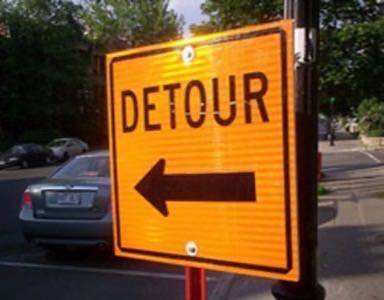Have you ever found yourself ignoring the directions of your car’s GPS in order to get somewhere faster or more efficiently than it can calculate? Me too. Chances are when leaving point A, you plugged in the address of point B, and a route was calculated on how to get from one to the other. The problem is, things come up on the route from point A to point B that may cause you to divert from your path such as construction, road closures, traffic, side trips you need to make or neighborhoods you may choose to avoid driving straight through.

Startups make similar diversions, but the directions they are straying from are those of a product roadmap. Roadmaps are projected out for months, if not years, to give a company a strategy to most effectively grow its product. But just as there are reasons we ignore our GPS, there are reasons for startups to alter their roadmap.
Spark Capital partner Bijan Sabet has worked with dozens of startups on project roadmaps, and recently he wrote about the importance of driving off course when necessary. Sabet recalls an example of this from his experience working with Boxee’s Avner Ronen.
“I remember our first board [meeting], Avner shared a product plan for the next twelve months. Then, before the very next board meeting he shipped a bunch of new things that weren’t on the roadmap,” writes Sabet. “He would see opportunities in the market, listen to his users and then create and launch. And that approach paid off and continues to pay off.”

If startups come up with a product roadmap and proceed to put their heads in the sand while they follow it unwaveringly, they will more than likely fail. So much is learned from testing products and receiving feedback that being unwilling to change the plan is a death sentence. This quality is so important for entrepreneurs that Sabet says he looks for it specifically when investigating possible investments.
“I’m more interested in learning if the founders have the talent and desire to move, innovate and create quickly,” he says.
The lesson here seems obvious, but there have been cases where startups are devoted to their roadmaps and revenue projects to a point where it affects the success of the company. Like some driving directions, there is no route that is most optimal for every startup to succeed. The willingness to turn left when your GPS says right is an important decision to know how to make as an entreprneur.
Photos by Flickr users Marcin Wichary and sporst.

















